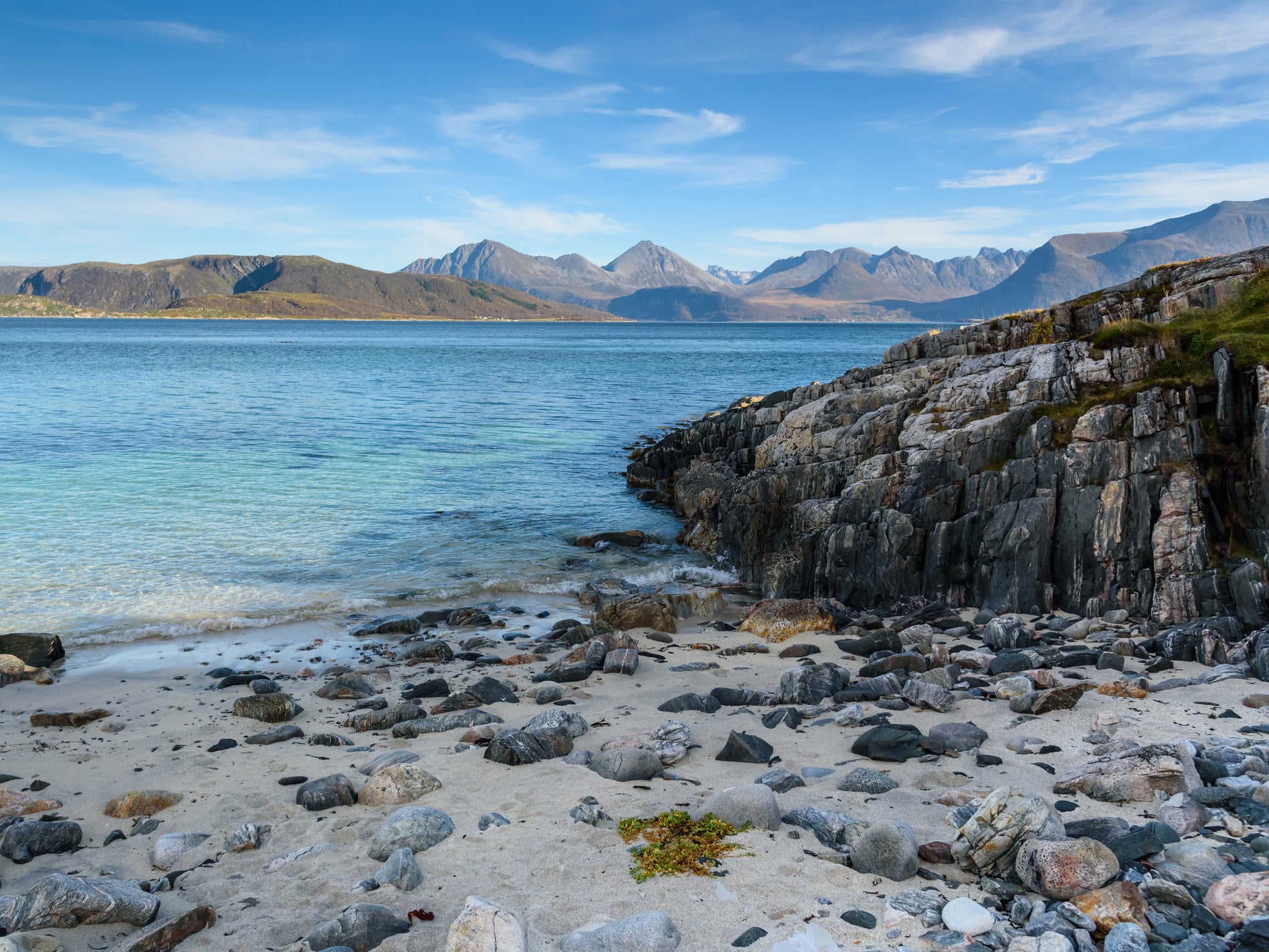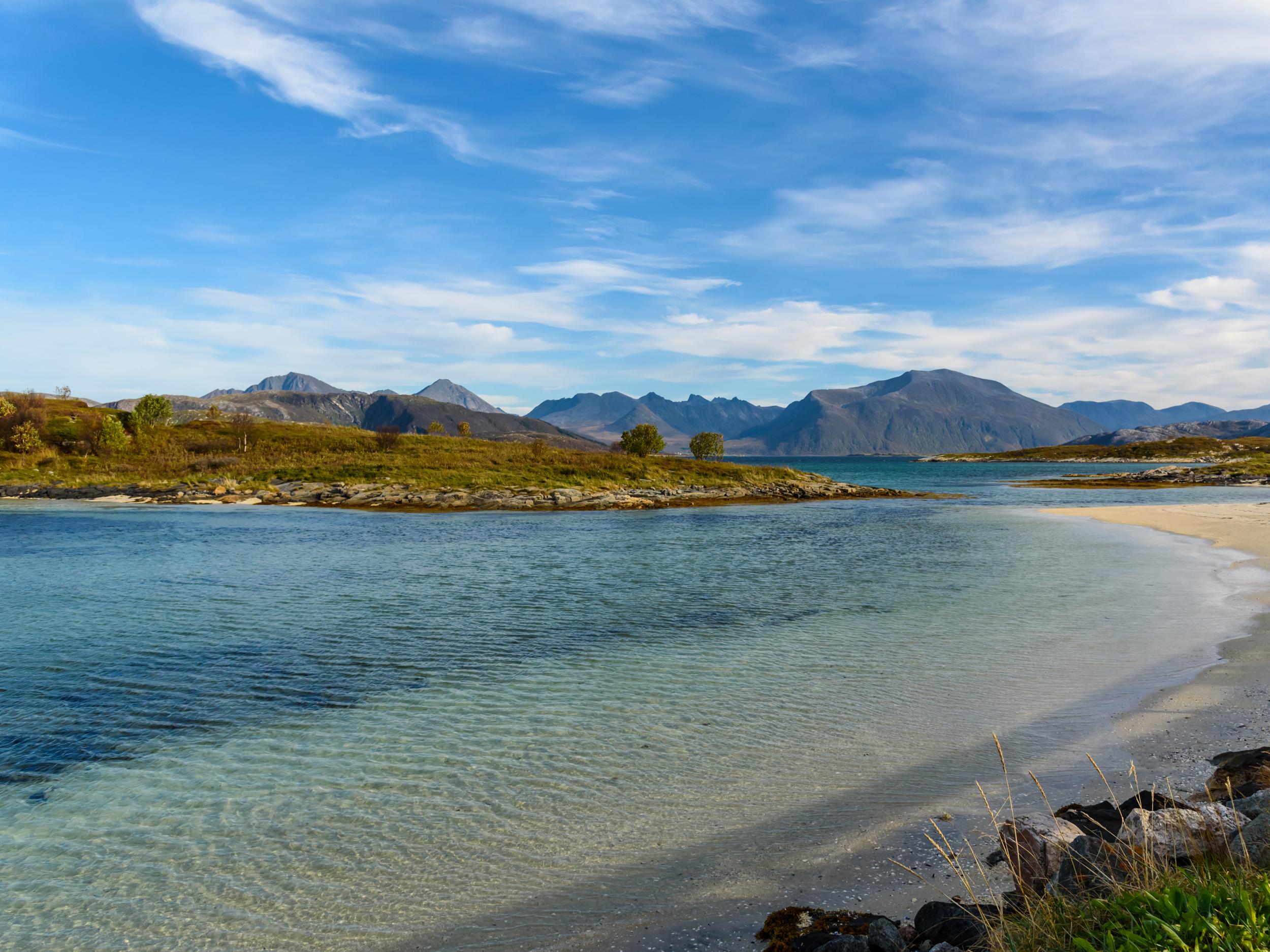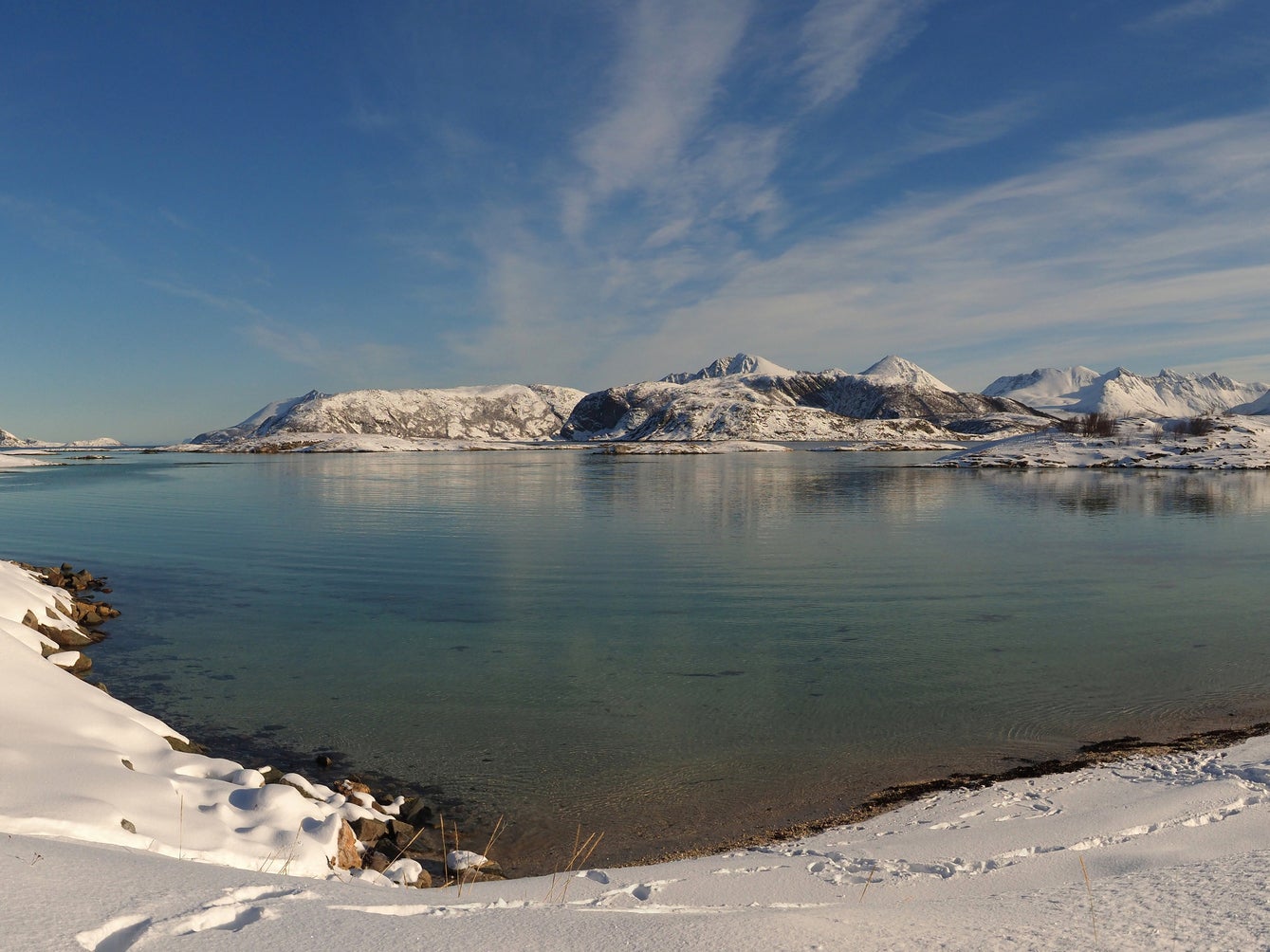Will a Norwegian island be the first in the world to go ‘time-free’?
The residents of Sommaroy Island live in constant daylight for 69 days during the summer. Now, they’re campaigning for a land free of clocks

On a picturesque Norwegian island where there is constant daylight during the summer, residents are campaigning to make their lives formally “time free”.
They argue that, in the 69 days a year when the sun does not set on the island, Sommaroy, which lies just north of the Arctic Circle, it is impossible to adhere to society’s conventions of waking when the sun rises and sleeping after the sun disappears.
But the islanders know that when the sun rises on 18 May, it will not set again until 26 July. Days become so drawn out that few pay attention to time, and many people can be found playing soccer, hiking, kayaking or mowing the grass in what the rest of the world would call the middle of the night.
The concept of time is so fluid on Sommaroy that many of its 350 residents signed a petition to create what they say would be the world’s first “time free” zone.
The islanders on Sommaroy – whose name translates to “Summer Island” – have, in practice, been disregarding the clock during summer for decades, but it was only in recent months that the idea of formalising their lifestyle has picked up steam.
The idea gained approval after a town-hall meeting last month, and Kjell Ove Hveding, the leader of the island’s “Let’s Stop Time” campaign, went to the national parliament in Oslo to deliver the petition asking for the Parliament to debate the proposal.
Islanders say that timeless living during the days of midnight sun could mean doing away with all clocks, deadlines and opening hours, and waving goodbye to the prescribed norms of doing certain activities, such as eating dinner or going to bed, at certain times.

“We are coloured by the way the rest of Europe and the world lives,” says Hveding, a business consultant whose family has lived on Sommaroy since 1832.
“In the north of Norway, we can think differently,” he adds. “We don’t know how lucky we are to have sunshine, the beautiful outdoors and for it to be possible to stay out all night.”
Hveding dismissed the suggestion that the campaign was motivated by a desire to draw more tourists, and insisted that it was an organic result of the islanders’ way of life.
“This is us, this is how we live,” he says. “It is not a joke, it is something that we seriously want.”
The appeal of timeless living was not lost on mainland tourism officials, however. They decided to try to capitalise on the islanders’ idea, and began to collaborate with Hveding. Innovation Norway, a state tourism company, apologised on Wednesday for not being clear about its role in the campaign.
But Steinar Daltveit, a representative of an agency working with Innovation Norway, says Hveding organised the town-hall event and gathered signatures on his own. And residents of the island made clear that summers had been spent without regard for time for generations.
To be clear, there are ways to know without clocks when it’s evening or the middle of the day during Sommaroy’s summer. Islanders use the position and changing colour of the sun: a burnt orange sun hovering near the horizon indicates night-time hours, and when the sun is high, it’s day.
The preponderance of devices with built-in clocks, like cellphones and kitchen appliances, also makes it difficult to avoid knowing the hour.
And the luxury of timelessness would mostly be for people who have the time off in the first place. Time would still exist for most everyone else, in some form or another: workers would still have to clock in for their jobs. Classes at the local school, students will be relieved to know, would not go on forever. Even tourists would still have to check out of their hotel rooms, preferably on time.
We don’t know how lucky we are to have sunshine, the beautiful outdoors and for it to be possible to stay out all night
“We would still have to go to work or school,” says Goran Mikkelsen, a digital marketing ambassador at the only hotel on the island, the Sommaroy Arctic. “It is more about the mindset.”
For some businesses on the island – one can walk the entire perimeter in under two hours – getting rid of clocks and a rigid schedule would not be so much of a challenge.
The grocery store officially has fixed opening hours, but Hveding and Mikkelsen say it already opens whenever it’s needed. The local cafe’s hours are also flexible.

Making plans on Sommaroy would not change either, as many residents already do not use fixed times. “You never say, ‘I will come by at six o’clock exactly.’ We always just say, ‘Later,’” Mikkelsen says.
But at the hotel, life without the constraints of time poses new challenges. Mikkelsen says that hotel employees “would have to be creative” in finding ways to adapt, suggesting that meal times might have to be extended or the hotel would have to offer all meals at any time of day.
To determine the bar’s opening hours and guests’ check-in and checkout times, hotel employees would have to use their expertise in judging the time of day by the sun’s position, Mikkelsen suggests, or they could go by the tides.
Despite the logistical obstacles, he says that getting rid of clocks could work well for visitors. Tourism is one of the main industries on the island, along with fishing, but “many people visiting the island have trouble sleeping when there is 24/7 daylight,” Mikkelsen says. “It would be fantastic for them to go to sleep when they want without worrying about the time or missing breakfast.”
The representative working with Innovation Norway, Daltveit, says that after tourism officials learned how the islanders lived during the summer, they decided to promote their plan for a time-free zone. He denied that the company had taken part in a hoax.
Norway was already named one of the world’s happiest countries in this year’s World Happiness Report, taking third place behind Finland and Denmark. But could Norwegians in the north be even happier by living time-free?
Bruce Hood, a professor of psychology who leads the University of Bristol’s Science of Happiness course, says, “It is all to do with the extent to which you think you are living by the clock”.
Other countries, for example, have been seriously considering doing away with daylight saving time: in March, European lawmakers approved a draft law that would abolish the mandatory twice-a-year switch.
Formal time-free living would be an alternative option, Sommaroy’s residents said.
There is no known precedent for what the islanders want to achieve, so even if they succeed in persuading parliament to debate the issue, no one is sure what would come next. Hveding, the leader of the campaign to stop time, is optimistic.
“When you have the possibility to just be impulsive, you feel alive,” he says. “It will be a better society if you think more about how you spend your time and what time is most valuable to you.”
© New York Times

Join our commenting forum
Join thought-provoking conversations, follow other Independent readers and see their replies
Comments
Bookmark popover
Removed from bookmarks